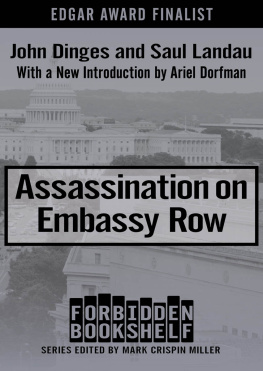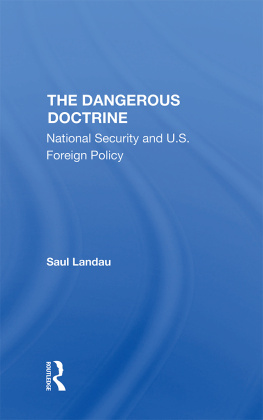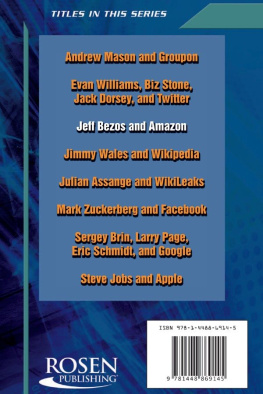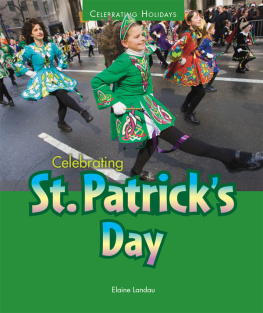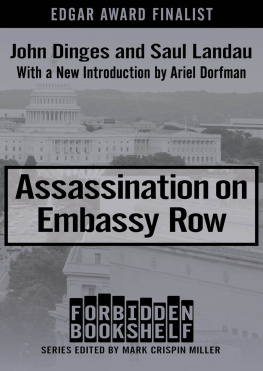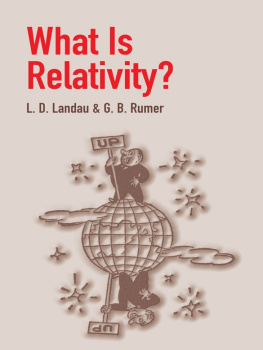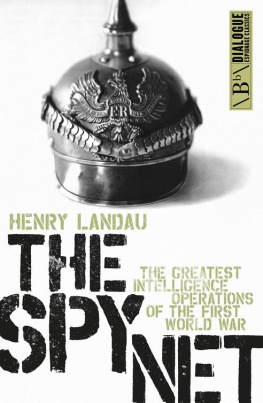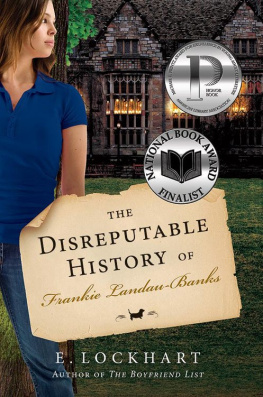Introduction
I
We the people seem to have the freest book trade in the world. Certainly we have the biggest. Cruise the mighty Amazon, and you will see so many books for sale in the United States today as would require more than four hundred miles of shelving to display thema bookshelf that would stretch from Bostons Old North Church to Fort McHenry in South Baltimore.
Surely that huge catalog is proof of our extraordinary freedom of expression: The US government does not ban books, because the First Amendment wont allow it. While books are widely banned in states like China and Iran, no book may be forbidden by the US government at any level (although the CIA censors books by former officers). Where books are banned in the United States, the censors tend to be private organizationschurch groups, school boards, and other local (busy)bodies roused to purify the public schools or libraries nearby.
Despite such local prohibitions, we can surely find any book we want. After all, its easy to locate those hot works that once were banned by the government as too obscene to sell, or mail, until the courts ruled otherwise on First Amendment groundsFanny Hill, Howl, Naked Lunch. We also have no trouble finding books banned here and there as antifamily, Satanic, racist, and/or filthy, from Huckleberry Finn to Heather Has Two Mommies to the Harry Potter series, just to name a few.
II
And yet, the fact that those bold books are all in print, and widely read, does not mean that we have the freest book trade in the world. On the contrary: For over half a century, Americas vast literary culture has been disparately policed, and imperceptibly contained, by state and corporate entities well placed and perfectly equipped to wipe out wayward writings. Their ad hoc suppressions through the years have been far more effectual than those quixotic bans imposed on classics like The Catcher in the Rye and Fahrenheit 451. For every one of those bestsellers scandalously purged from some provincial school curriculum, there are many others (we cant know how many) that have been so thoroughly erased that few of us, if any, can remember them, or have ever heard of them.
How have all those books (to quote George Orwell) dropped into the memory hole in these United States? As America does not ban books, other meansless evident, and so less controversialhave been deployed to vaporize them. Some almost never made it into print, as publishers were privately warned off them from on high, either on the grounds of national security or with blunt threats of endless corporate litigation. Other books were signed enthusiasticallythen dumped, as their own publishers mysteriously failed to market them, or even properly distribute them. But it has mainly been the press that stamps out inconvenient books, either by ignoring them, ormost oftenlaughing them off as conspiracy theory, despite their soundness (or because of it).
Once out of print, those books are gone. Even if some few of us have not forgotten them, and one might find used copies here and there, these books have disappeared. Missing from the shelves and never mentioned in the press (and seldom mentioned even in our schools), each book thus neutralized might just as well have been destroyed en masseor never written in the first place, for all their contribution to the public good.
III
The purpose of this series is to bring such vanished books to lifefirst life for those that never saw the light of day, or barely did, and second life for those that got some notice, or even made a splash, then slipped too quickly out of print, and out of mind.
These books, by and large, were made to disappear, or were hastily forgotten, not because they were too lewd, heretical, or unpatriotic for some touchy group of citizens. These books sank without a trace, or faded fast, because they tell the sort of truths that Madison and Jefferson believed our Constitution should protecttruths that the people have the right to know, and needs to know, about our government and other powers that keep us in the dark.
Thus the works on our Forbidden Bookshelf shed new lightfor most of us, its still new lighton the most troubling trends and episodes in US history, especially since World War II: Americas broad use of former Nazis and ex-Fascists in the Cold War; the Kennedy assassinations, and the murders of Martin Luther King Jr., Orlando Letelier, George Polk, and Paul Wellstone; Ronald Reagans Mafia connections, Richard Nixons close relationship with Jimmy Hoffa, and the mobs grip on the NFL; Americas terroristic Phoenix Program in Vietnam, US support for South Americas most brutal tyrannies, and CIA involvement in the Middle East; the secret histories of DuPont, ITT, and other giant US corporations; and the long war waged by Wall Street and its allies in real estate on New York Citys poor and middle class.
The many vanished books on these forbidden subjects (among others) altogether constitute a shadow history of Americaa history that We the People need to know at last, our country having now become a land with billionaires in charge, and millions not allowed to vote, and everybody under full surveillance. Through this series, we intend to pull that necessary history from the shadows at long lastto shed some light on how America got here, and how we might now take it somewhere else.
Mark Crispin Miller
A Thriller for Our Times
For Saul Landau, who will never rest in peace while there is injustice in the world.
It was in Santiago de Chile, in early September of 1973, that I met Orlando Letelier for the first and also for the last time. We could not know then, of course, that three years laterto be precise, on September 21, 1976he would be dead, murdered along with an American coworker, Ronni Moffitt, when the car he was driving exploded at Sheridan Circle in Washington, DC.
Though the possibility of that bloody fate, ordered by General Augusto Pinochet, Chiles dictator, was certainly not on Orlandos mind at a late-night dinner in Chiles capital, everybody at that gathering knew that all the guests were in danger, that many of those present might not survive a coup that loomed in the near future. In effect, less than one week later, on September 11, 1973, a military junta overthrew Salvador Allende and terminated his experiment of trying to build socialism through democratic means.
The last man who could have really prevented that coup, General Carlos Prats, had recently resigned as the commander in chief of the Chilean Army and also as Allendes minister of defense. As the cultural and press attach for Allendes chief of staff, I was one of those involved in arranging that get-together. The dinner was a way of thanking Prats for his service and loyalty. Orlando Letelier had taken over as minister of defense and was there with his wife, Isabel Margarita.





